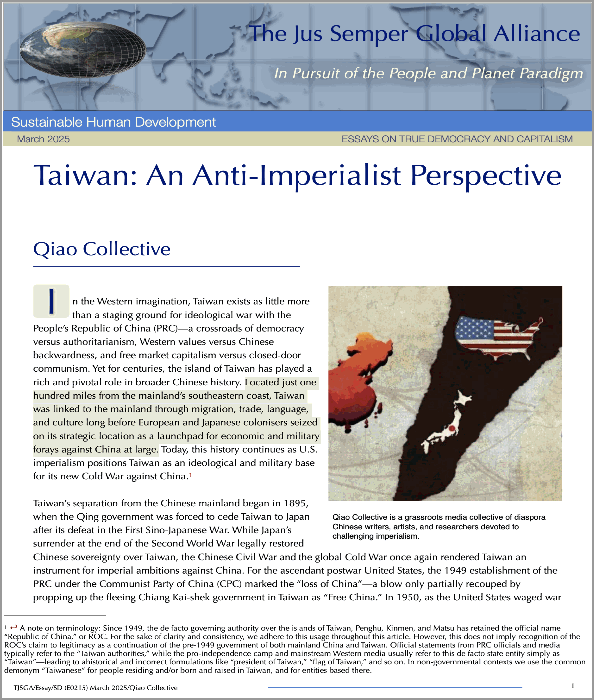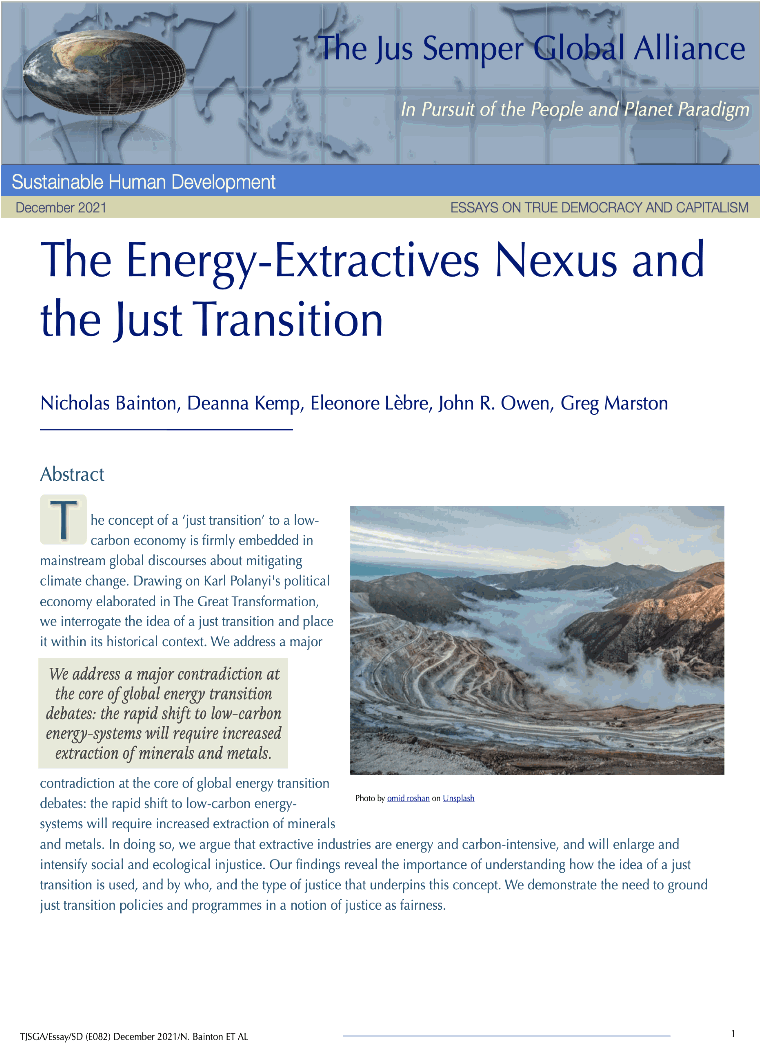The Energy-Extractives Nexus and the Just Transition
Nicholas Bainton, Deanna Kemp, Eleonore Lèbre, John R. Owen, Greg Marston
The concept of a ‘just transition’ to a low-carbon economy is firmly embedded in mainstream global discourses about mitigating climate change. Drawing on Karl Polanyi's political economy elaborated in The Great Transformation, we interrogate the idea of a just transition and place it within its historical context. We address a major contradiction at the core of global energy transition debates: the rapid shift to low-carbon energy-systems will require increased extraction of minerals and metals. In doing so, we argue that extractive industries are energy and carbon-intensive, and will enlarge and intensify social and ecological injustice. Our findings reveal the importance of understanding how the idea of a just transition is used, and by who, and the type of justice that underpins this concept. We demonstrate the need to ground just transition policies and programmes in a notion of justice as fairness.
I get to have the benefits of air conditioning and air travel and all the other environmentally expensive amenities that the prime victims of climate change will not have. And the same holds for the overlapping case of global economic justice. ‘The Beneficiary’ (Robbins, 20171) Introduction
Karl Polanyi's classic work The Great Transformation provides a template for understanding major points of epochal change. The proliferation of proposals for transitioning to a low-carbon economy implies, to a greater or lesser extent, a major paradigmatic transformation in the Polanyian sense (e.g., Kanger & Schot, 20192). This thinking is beginning to settle around the concept of a ‘just transition’, which originally emphasised labour and environmental interests and is now broadly conceived as an approach for balancing socio-economic and ecological considerations in response to climate change. We might therefore say that our current ecological crisis is subject to what Polanyi called a ‘double movement’: where steps taken towards the partial or complete resolution of a crisis are continually counter-balanced by forces that created the crisis in the first place. The concept of a just transition forms part of the many movements in the dynamics of industrial capitalism. But as we observe, there are both modest and radical versions of the just transition concept and there is limited consensus as to what a process of transition should or might entail and who should be responsible for this change. In this article, we address a major contradiction at the core of energy transition discourse and debate: building low-carbon energy-systems to power a low-carbon economy will require vast amounts of minerals and metals. Meeting this future demand will mean more energy and carbon-intensive forms of resource extraction, which will likely enlarge and intensify geographies of injustice. The meaning of a just transition is explored in the context of expanding extractive capitalism – we question what is ‘just’ about the transition given the current and future costs of delivering on global emissions targets. As the just transition discourse rises in popularity, and shapes climate and energy policies, tracing both its history and future development will be important. Understanding how the idea is used, and by who, matters a great deal as we interrogate who bears the burden and shares the benefits of a global energy transition. For a full read of this brief, click here or on the picture to download the pdf file. |






